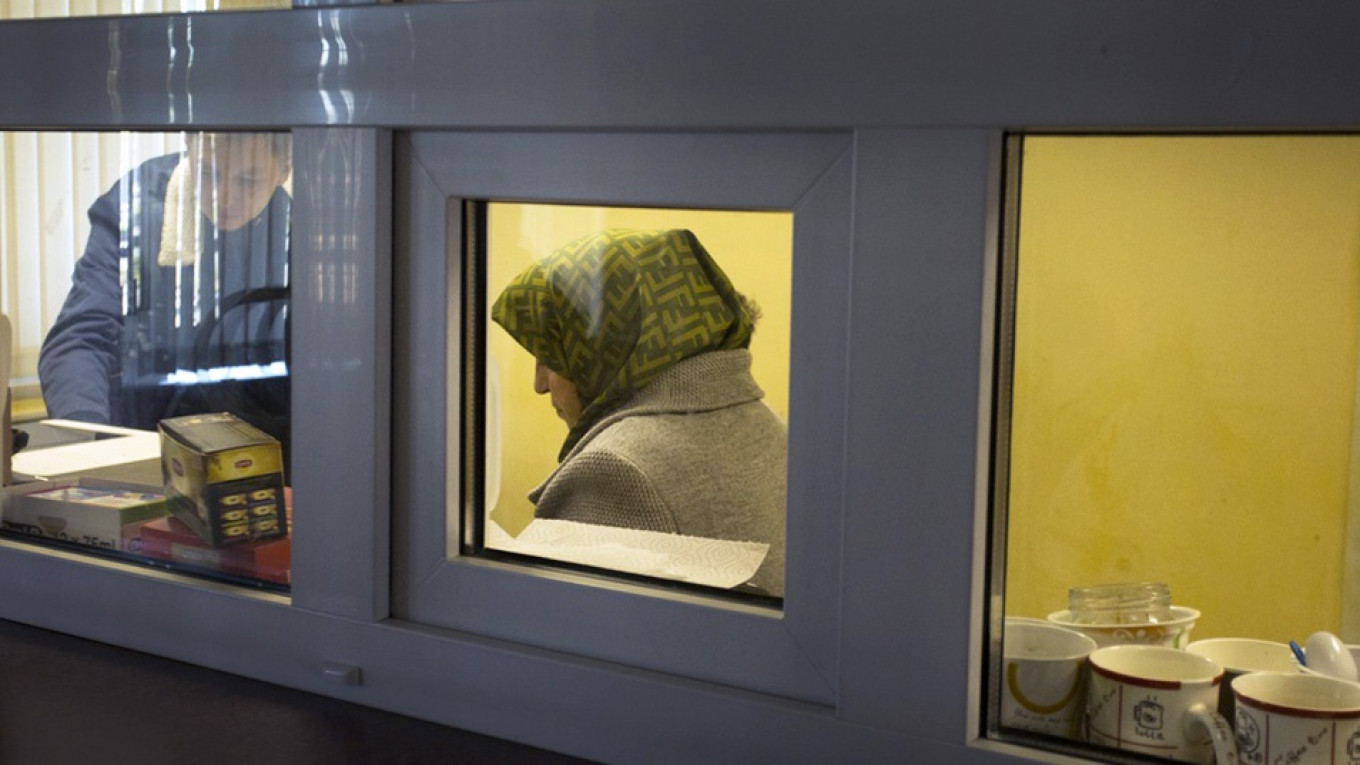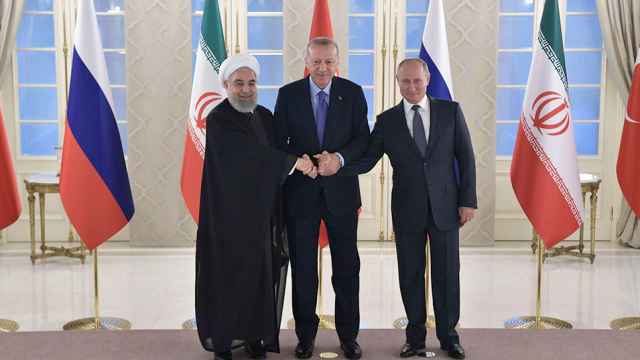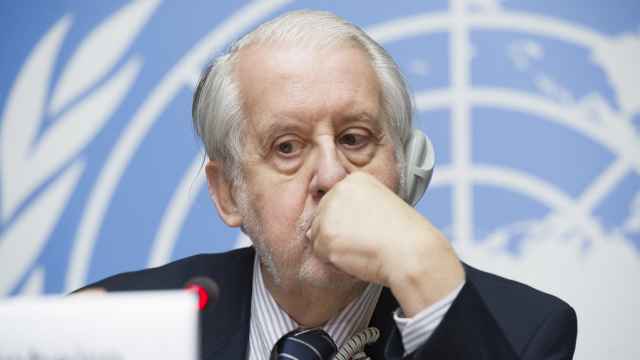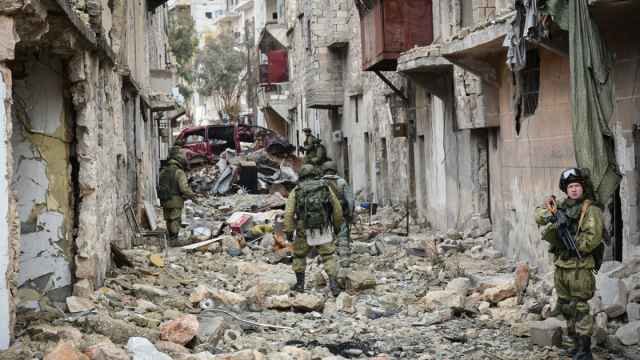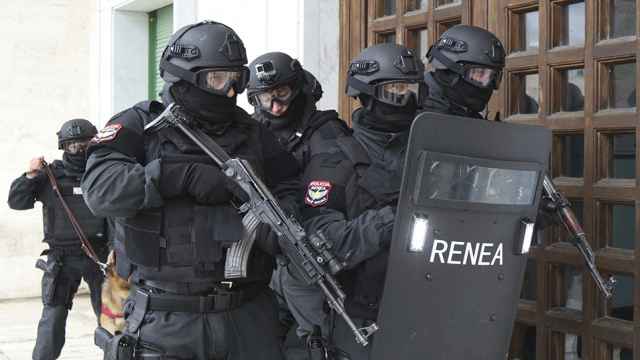NOGINSK — In a gray industrial city an hour outside of Moscow, Safa sits in front of a room full of low desks and child-size chairs. On the walls around her, posters of the Arabic alphabet hang next to pictures of cartoon animals with their names written in Russian.
Safa’s classroom, empty on a late afternoon in August, is part of a temporary school for Syrian refugee children, who, without proper documents, have been unable to get into local schools.
Like her students, Safa, a solemn woman with deep-set eyes and dark auburn hair, came to Russia to escape fighting in Syria. But almost four years later, she has been unable to either return home or get permanent asylum.
Russia entered the Syrian war in September 2015, turning the tide of the conflict decisively in President Bashar Assad’s favor. Three years later, Moscow is launching a diplomatic push with Syria’s neighbors to return millions of refugees and secure funding for the reconstruction of the war-torn country.
At home, however, critics say the authorities have not shown the same urgency in working with those who have been displaced by the war. Russian courts have ruled that the seven-year conflict is not reason enough to grant asylum to Syrians in Russia, leaving thousands — like Safa — with little hope of ever gaining permanent legal status.
“We cannot go home,” Safa told The Moscow Times. “But it is very hard for us to stay here.”
Zero acceptance
When the war broke out in 2011, Safa, who declined to give her full name, was teaching math and chemistry to high school students in Damascus and Hama, a town in western Syria three hours away. In her spare time, she ran a company that tailored wedding dresses.
As the country descended into civil war, travel between the two cities became increasingly dangerous. At the same time, her wedding dress business was rapidly losing customers.
In February 2015, Safa fled to Russia on a business visa with plans to connect with a Syrian factory owner in the Moscow region. She left behind three sons in their twenties in the hope that she would return home soon.
For many Syrians, getting to Russia is the easy part. The authorities are generous with business and tourist visas and those who prefer to bypass official channels can buy visas through back channels for upwards of $3,000. Getting permission to stay is an entirely different story.
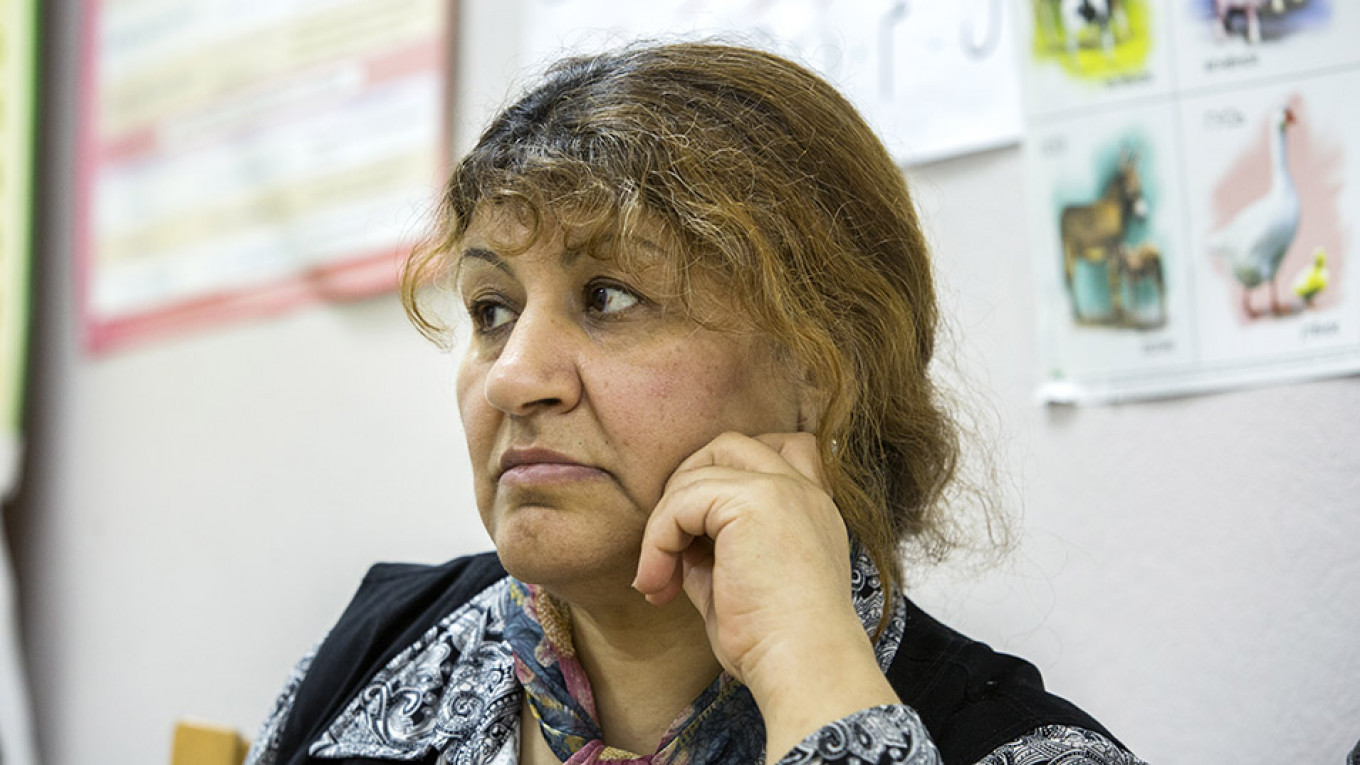
Within the first months of her arrival, Safa began the arduous process of applying for temporary asylum, which would allow her to work and find housing. “I gathered my documents together and went to the Federal Migration Service, and I waited and I waited and I was rejected.”
Safa’s experience is not uncommon, says Yevgeny Yastrebov, director of the Syria program for the Civic Assistance Committee, an NGO which is the primary point of contact for refugees in Russia.
According to his organization, of around 7,000 Syrians in Russia in 2018, just two held permanent refugee status. Some 1,128 had been granted temporary refugee status. The Federal Migration Services did not respond to a request for comment about the asylum process for Syrian citizens.
“On a scale from zero to ten, the Russian asylum system is pretty much at zero,” Yastrebov said. “I tell people: I have to give you the real picture and the real picture is that Russia is not accepting of refugees.”
Politics at play
Russia is largely alone in its assessment that Syria is safe. After Moscow announced its program to return refugees from countries neighboring Syria in August, EU officials said "the conditions are just not there." The UN has also said the country is not yet safe for refugees to go home.
“Russia has acknowledged that its facilitation of refugee return has to do with reconstruction efforts and unlocking international funding,” says Yury Barmin, an analyst with the Russian International Affairs Council.
As well as sending a striking geopolitical signal to countries involved in the conflict, Moscow’s approach has had reverberations back home. Most recently, Russia’s Supreme Court rejected an appeal by ten Syrians applying for temporary asylum ruling that the conflict in Syria did not qualify as a war.
Analysts say the Kremlin is determined to tout its intervention in Syria as a success, and giving refugee status to Syrians within its borders could undermine that narrative.
But that position has drawn ire among Syrians stuck with nowhere to go. “The Russian army is walking around in Syria with tanks. How do you expect me to go and live there,” Samir, an asylum seeker who declined to give his last name, told The Moscow Times.
Life in limbo
Refugees whose asylum claims are rejected are rarely given a clear answer why, says Yastrebov. Instead, they receive letters in legalese explaining they have three days to leave the country. Rather than packing their bags and going home to a country in conflict, they simply continue their lives in Russia without papers. But this also comes with its own risks.
Without legal status, some Syrians are vulnerable to exploitation from their employers, many of who are fellow their countrymen who own factories in Russia. They also say they are routinely stopped by police who demand fines for not carrying correct papers. Children also have limited access to the education system.
Three years ago, the Civic Assistance Committee stepped in to fill the gap and, with the help of the UNHCR and local activists, opened two community centers to offer basic education for children and occasional Russian-language classes for adults.
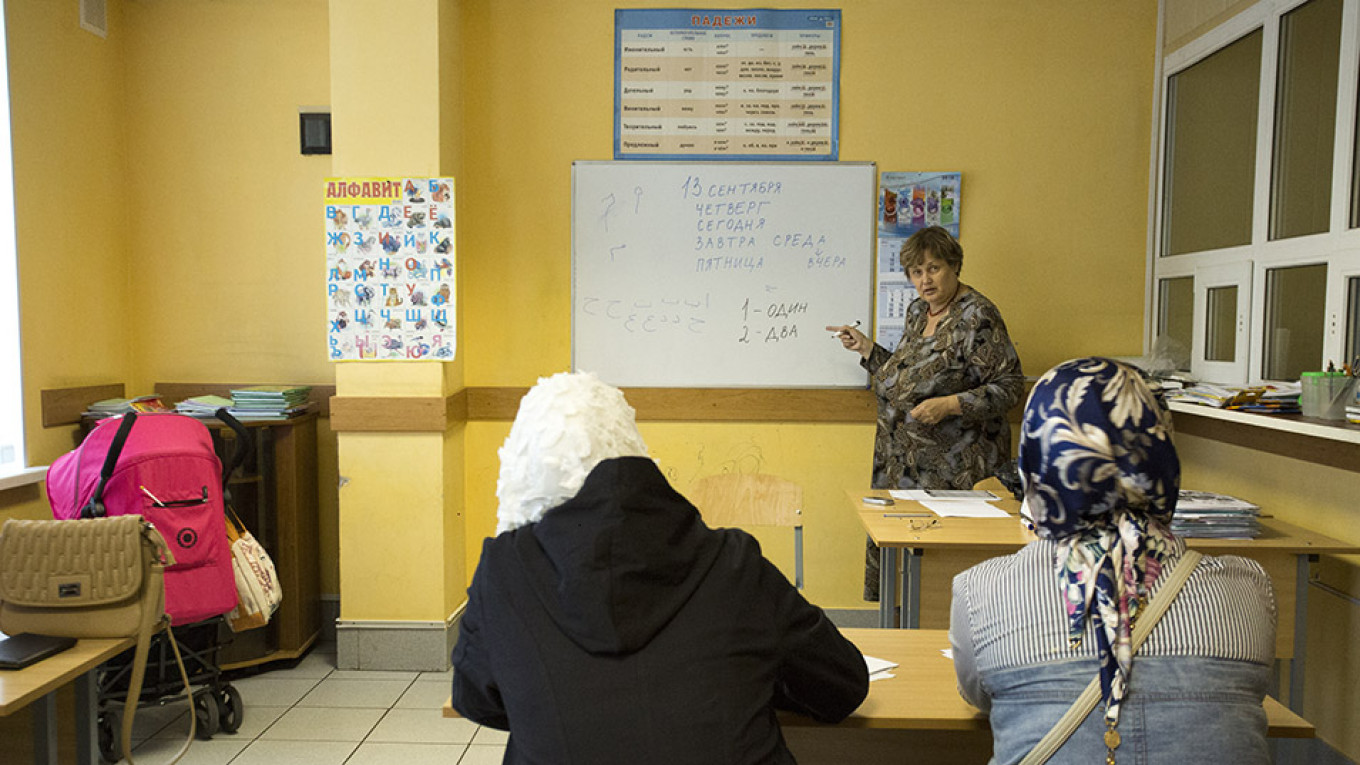
Although Yastrebov says he hoped the centers in Noginsk and Losino-Petrovsky in the Moscow region would be a temporary solution, they appear to be increasingly permanent.
Inside a classroom in the Losino-Petrovsky center, a clutch of young women in brightly-colored headscarves laugh among themselves. Their teacher, an imposing Russian woman with a friendly but booming voice, reminds them that they are on the path to becoming top students. In the corner of the room, a child sleeps quietly in a stroller.
The women are all asylum seekers from Syria. Most of them are married and are stay-at-home mothers. Several days a week, they come together to learn Russian. The women say they are not confined to their homes, and regularly meet at each other's houses or in cafes. One of them, Marva, who has been in Russia now for seven years, says it is a beautiful country, "but people are a little racist.”
The lucky ones
After two years of applying, reapplying and filing appeals, Safa finally was granted one-year asylum early last year. Her new status allows her to work legally at the school in Noginsk where she teaches math, Arabic and art.
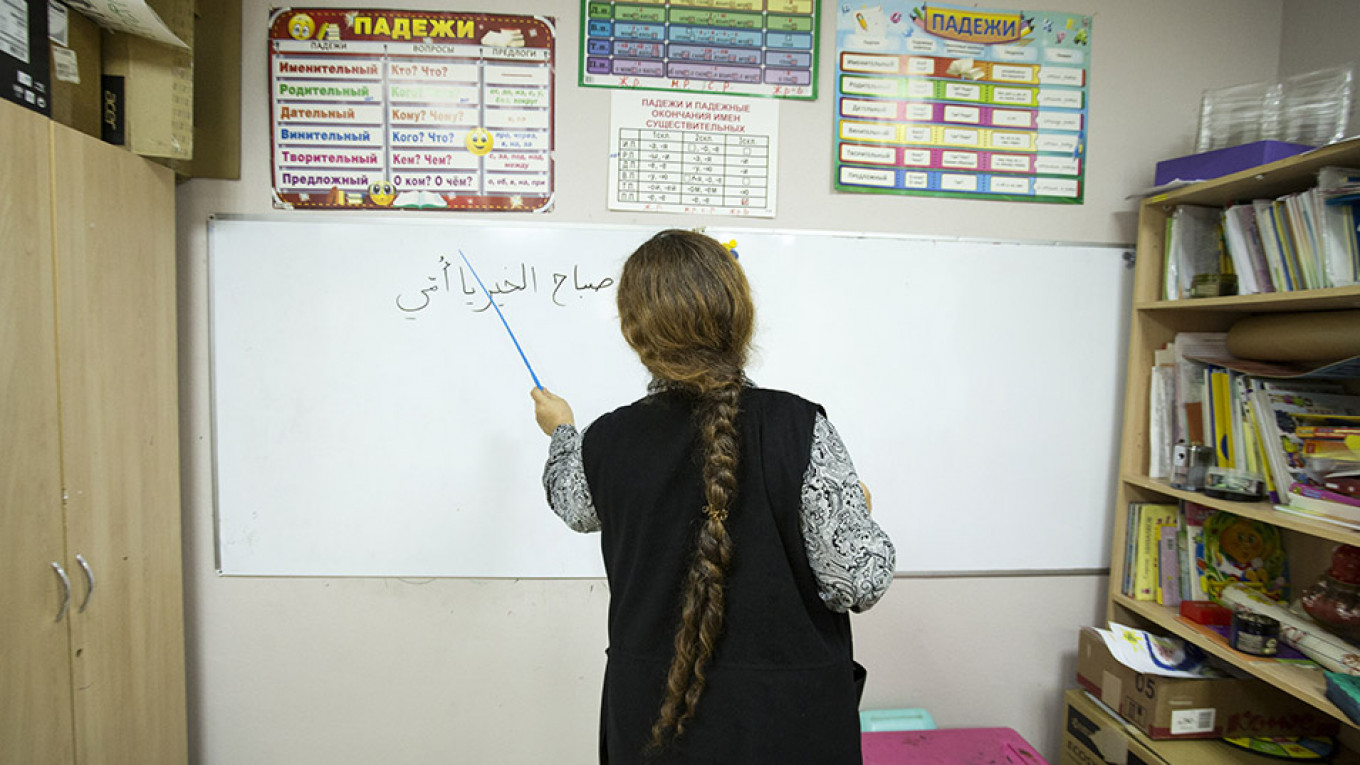
She lives with her 24-year-old son, who joined her in Russia two years ago. They share a one-bedroom apartment in a Soviet-era high-rise building where most of their neighbors are Russian or Moldovan. Her other sons were drafted into Assad’s army, where they remain today.
Safa says she follows the situation in Syria closely through Facebook posts and Arabic news sites. From what she sees, some places may be calmer — Damascus, for example — but other cities, like Hama, are still unlivable.
Until she can return to Syria, Safa says her work is her lifeline. “It is so important for me to be able to help kids,” she says, “and I think it is important for them to know their own language.”
“Maybe one day they will even go back to Syria and they can continue their education there.”
A Message from The Moscow Times:
Dear readers,
We are facing unprecedented challenges. Russia's Prosecutor General's Office has designated The Moscow Times as an "undesirable" organization, criminalizing our work and putting our staff at risk of prosecution. This follows our earlier unjust labeling as a "foreign agent."
These actions are direct attempts to silence independent journalism in Russia. The authorities claim our work "discredits the decisions of the Russian leadership." We see things differently: we strive to provide accurate, unbiased reporting on Russia.
We, the journalists of The Moscow Times, refuse to be silenced. But to continue our work, we need your help.
Your support, no matter how small, makes a world of difference. If you can, please support us monthly starting from just $2. It's quick to set up, and every contribution makes a significant impact.
By supporting The Moscow Times, you're defending open, independent journalism in the face of repression. Thank you for standing with us.
Remind me later.


